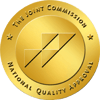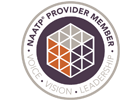If you are wondering whether you or a loved one has a substance use disorder, you are not alone, and it is a question worth pondering. About 261 Americans die every day from excessive alcohol use (CDC).
Addiction is a disease, just like diabetes. Like an addict, a diabetic is not responsible for having the disease, but they are responsible for treating it.
Oftentimes addiction co-occurs with trauma. Regarding this, Jerry Ehmann LPC, LISAC said, “There is a need to change our questions from what's wrong with them to what happened to them?... Sometimes the substances have been the only coping skill for a [veteran] and removing a coping mechanism (albeit unhealthy) without addressing the underlying trauma is unethical in my opinion.”
If you do have the disease of addiction, rest assured it is not your fault. However, it is your responsibility to heal. Healing is possible. In fact, individuals in recovery often have the greatest transformation stories. Read some here.
How do you know if you or a loved one has a substance use disorder?
Signs of Addiction
Do you/does he present the following behaviors? If you or he would answer yes to 3+ signs listed below, the answer is likely yes. Below this list we will discuss potential solutions.
Do you/does he...
- Find it hard to leave an alcoholic beverage glass empty?
- Drink until blacking out or passing out?
- Abandon self-intended drinking limits?
- Hide liquor?
- Self-isolate?
- Speak dishonestly about quantities and frequency of consumption?
- Neglect hobbies, responsibilities, or relationships outside of substance use?
- Deny behavior is problematic?
- Drink in the morning?
- Feel withdrawal symptoms without use, such as shaking- especially the hands, trouble sleeping, irritability, sweating, nausea, change in appetite, anxiety, or depression?
- Feel discontent (dis-ease) for the way day-to-day life is unfolding?
Potential Solutions
The most important note here is that healing is possible. Each case is unique, as some individuals benefit most from talk therapy, some from equine therapy, and/or medication assisted treatment. There are various therapeutic modalities available to try. Often residential treatment is the best solution because it not only helps break down previous habits and teaches tools for individuals to build their ideal lifestyle, but it also allows the time and safe space needed to integrate those tools alongside others who share similar goals.
A great first step is to find an experienced and qualified therapist near you who specializes in addiction. A directory of therapists can be found here. If you are wondering about the next step for receiving help, please call our Admissions Director for a complimentary consultation at 480.595.2222, or email info@SobermansEstate.com.





